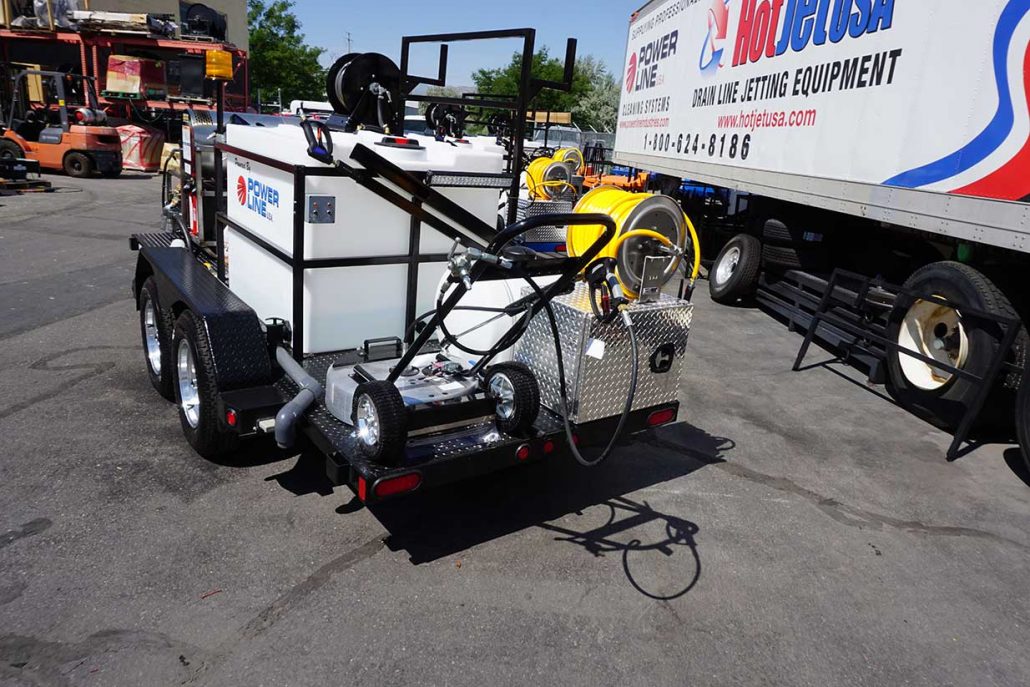
If you’re running a power washing business (or planning to start one), nothing boosts your flexibility and profits quite like a fully-equipped mobile unit. Whether you’re servicing homes, commercial lots, or fleet vehicles, a smart mobile setup lets you work faster, cover more ground, and look more professional — which leads to more money. 💰🧽💼
But what exactly goes into setting up a mobile power washing rig that’s efficient, reliable, and built for growth?
In this guide, we’ll walk through everything you need to build a mobile unit that works as hard as you do — from truck beds and trailers to water tanks, pressure washers, and marketing signage. 🔧📦🧼
🚚 Why Go Mobile?
First things first — why go mobile?
A mobile unit means you can:
- 🚛 Take your business directly to clients
- 💨 Set up and clean quickly without relying on their water or power
- 🧰 Carry everything you need — tools, chemicals, and backup gear
- 💼 Look professional, which builds trust and repeat business
- 🕐 Handle more jobs per day with better organization
It’s basically turning your truck or trailer into a rolling business HQ.
🛠️ Step 1: Choose Your Platform — Truck or Trailer?
There are two common options for your mobile setup:
🛻 Truck Bed Unit
- Great for solo operators or light-duty services
- More compact and easier to maneuver
- Quicker to park in residential neighborhoods
Downside: Limited space and harder to upgrade if you grow.
🚜 Trailer Unit
- More space for larger water tanks, reels, and equipment
- Professional appearance for commercial jobs
- Easier to scale with multiple machines
Downside: Requires towing and parking skills; may be harder to store
💡 Pro Tip: Start with a truck rig if you’re just launching. Upgrade to a trailer as your client base grows.
💦 Step 2: Select the Right Power Washer
This is the heart of your setup. You’ll need to decide between:
🔌 Electric Units
- Quiet and lightweight
- Great for residential and indoor use
- Limited power and requires plug-in access
⛽ Gas-Powered Units
- More powerful (great for heavy-duty work)
- Fully mobile with no external power needed
- Can handle commercial and industrial jobs
Minimum Recommendation:
For mobile operations, choose a gas unit with at least 3,500 PSI and 4 GPM. More GPM = faster rinse times. 🧼💨
Popular pro models: Honda GX Series, Simpson, or Pressure-Pro
Browse Amazon Here For Mobile Pressure Washing Setups And Accessories
💧 Step 3: Install a Water Tank
While some clients let you hook into their water, many don’t — especially commercial jobs. A dedicated water tank ensures you’re ready for anything.
What to Look For:
- Size: 100–300 gallons is standard for residential work
- Material: Poly tanks are durable and lightweight
- Baffling: Prevents water from sloshing during transit
🔗 Connect your tank to your pressure washer using a float valve and filter to protect your pump.
💡 Bonus Tip: Use a buffer tank to prevent your pump from starving during low-pressure situations.
🔁 Step 4: Add Hose Reels and Storage
You’ll need space to manage:
- High-pressure hoses
- Garden hoses
- Chemical lines
- Extension cords
Invest in sturdy hose reels (manual or electric) mounted on the side or front of your rig. Keep hoses clean and untangled for faster setup and teardown. 🧵🌀
Also add lockable storage bins or toolboxes for:
- Nozzles
- Sprayers
- PPE gear
- Chemicals and soaps
- Maintenance tools
A well-organized rig = more jobs per day = more income. ✅🕒💵
🧴 Step 5: Chemical Delivery System
Many jobs require soft washing, degreasers, or eco-friendly soaps. You’ll need a dedicated chemical tank and pump system.
Setup Options:
- Downstream injector
- Proportioner system (e.g., X-Jet, ProPortioner)
- Dedicated soft wash pump (12V or air)
Label all chemicals clearly and secure them safely away from the water system to avoid contamination. 🧪🚫💧
🔌 Step 6: Power Supply (Optional)
For advanced setups or soft wash systems, consider adding:
- A battery bank or
- A generator (gas-powered or inverter)
Use it to run your proportioner, lights, electric reels, or backup pumps. Keep everything charged and functional while in the field. ⚡🔋
🎯 Step 7: Branding and Signage
Your mobile unit is also a rolling billboard — don’t miss the marketing opportunity!
Add:
- Business name and logo
- Phone number and website
- QR code for online booking
- Social media handles
Use high-contrast vinyl decals or magnetic signs. Every red light or driveway becomes a chance to win a new client. 🚦👀📲
🛡️ Step 8: Safety and Legal Gear
You’ll also want:
- Fire extinguisher 🔥
- First aid kit 🩹
- Spill containment kit 🧯
- DOT reflective triangles if towing
- Updated vehicle insurance with commercial coverage 🚗📝
Safety is part of professionalism — and often required for commercial contracts.
🧠 Efficiency Tips for On-the-Go Success
To get the most out of your mobile unit:
- Pre-fill tanks before heading out
- Use checklists to restock supplies
- Schedule jobs by geography to minimize driving
- Clean and flush hoses after every job
- Keep backup tips, hoses, and fittings on hand
🧰 A well-oiled system means more jobs per day — and less stress.
💬 Final Thoughts
A powerful, well-organized mobile power washing unit gives you the edge — helping you show up prepared, look sharp, and knock out jobs efficiently. It’s not just a vehicle — it’s a tool for scale and success. 📈🚛
Start smart, upgrade as you grow, and don’t underestimate the value of an organized rig. With the right setup, you’ll be cleaning up the competition — and your clients’ properties — in no time. 🧼💪💰
Browse Amazon Here For Mobile Pressure Washing Setups And Accessories






